"Being for the Benefit of Mr. Kite!" is a song recorded by the English rock band the Beatles for their 1967 album Sgt. Pepper's Lonely Hearts Club Band. It was written and composed primarily by John Lennon and credited to Lennon–McCartney.
 W
W"The Cover of 'Rolling Stone'" is a song written by Shel Silverstein and first recorded by American rock group Dr. Hook & the Medicine Show. Produced by Ron Haffkine and released in 1972, it was the band's third single and peaked at No. 6 on the U.S. pop chart for two weeks on March 17–24, 1973. The song satirically laments that the band had not appeared on the cover of the Rolling Stone, a magazine that focuses on music, politics, and popular culture. The song's success led to the band appearing on the cover of Rolling Stone in 1973, albeit in caricature.
 W
W"A Day in the Life" is a song by the English rock band the Beatles that was released as the final track of their 1967 album Sgt. Pepper's Lonely Hearts Club Band. Credited to Lennon–McCartney, the verses were mainly written by John Lennon, with Paul McCartney primarily contributing the song's middle section. It is widely regarded as one of the finest and most important works in popular music history.
 W
W"Disarm" is a song by American alternative rock band the Smashing Pumpkins. It was the third single from their second album, Siamese Dream (1993), and became a top-20 hit in Australia, Canada, and the United Kingdom despite being banned in the latter country due to the song's lyrical content.
 W
W"Give Ireland Back to the Irish" is the debut single by the British–American rock band Wings that was released in February 1972. It was written by Paul McCartney and his wife Linda in response to the events of Bloody Sunday, on 30 January that year, when British troops in Northern Ireland shot dead thirteen civil rights protestors. Keen to voice their outrage at the killings, Wings recorded the track two days later at Abbey Road Studios in London. It was the band's first song to include Northern Irish guitarist Henry McCullough.
 W
W"Go All the Way" is a single by American rock group Raspberries, released in July 1972 and written by band leader Eric Carmen. The song reached the Top 5 on three principal US charts: number 5 on the Billboard Hot 100, number 4 on Cashbox and number 3 on Record World. The single sold more than 1.3 million copies, earning the band their only certified Gold Record. It was their second single release, their all-time biggest US hit, and appeared on their debut LP, Raspberries.
 W
W"God Save the Queen" is a song by the British punk rock band the Sex Pistols. It was released as the band's second single and was later included on their only studio album, Never Mind the Bollocks, Here's the Sex Pistols. The song was released during Queen Elizabeth II's Silver Jubilee in 1977.
 W
W"Happiness Is a Warm Gun" is a song by the English rock band the Beatles from their 1968 album The Beatles. It was written by John Lennon and credited to the Lennon–McCartney partnership. The song was composed into three distinct sections, referred by Lennon as "the Dirty Old Man", "the Junkie" and "the Gunman ". He derived the title from an NRA magazine and explained that the lyrics were a double entendre for guns and his sexual desire for Yoko Ono.
 W
W"Hi, Hi, Hi" is a song written by Paul and Linda McCartney and performed by Wings. It was released as a double A-side single with "C Moon" in 1972. The song was recorded around the same time as "C Moon", in November 1972.
"I Am the Walrus" is a song by the English rock band the Beatles from their 1967 television film Magical Mystery Tour. Written by John Lennon and credited to Lennon–McCartney, it was released as the B-side to the single "Hello, Goodbye" and on the Magical Mystery Tour EP and album. In the film, the song underscores a segment in which the band mime to the recording at a deserted airfield.
 W
W"I'll Be Home for Christmas" is a Christmas song written by the lyricist Kim Gannon and composer Walter Kent and recorded in 1943 by Bing Crosby, who scored a top ten hit with the song. Originally written to honor soldiers overseas who longed to be home at Christmas time, "I'll Be Home for Christmas" has since gone on to become a Christmas standard.
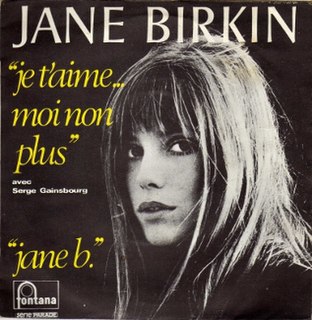 W
W"Je t'aime… moi non plus" is a 1967 song written by Serge Gainsbourg for Brigitte Bardot. In 1969, Gainsbourg recorded the best known version with Jane Birkin. The duet reached number one in the UK, and number two in Ireland, but was banned in several countries due to its overtly sexual content.
 W
W"John Wayne Is Big Leggy" is the debut single by British music group Haysi Fantayzee, released in 1982. It peaked at number 13 on the Austrian Singles Chart, number 3 on the German Singles Chart, number 4 on the Swiss Singles Chart, and number 11 on the UK Singles Chart.
 W
W"Lola" is a song written by Ray Davies and performed by English rock band the Kinks on their album Lola Versus Powerman and the Moneygoround, Part One. The song details a romantic encounter between a young man and a possible trans woman or cross-dresser, whom he meets in a club in Soho, London. In the song, the narrator describes his confusion towards Lola, who "walked like a woman but talked like a man".
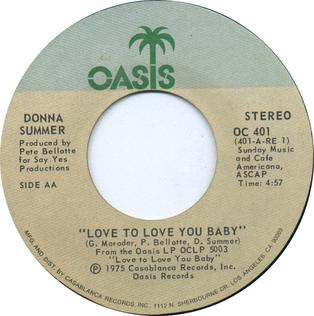 W
W"Love to Love You Baby" is a song by American singer Donna Summer from her second studio album Love to Love You Baby (1975). Produced by Pete Bellotte, and written by Italian musician Giorgio Moroder, Summer, and Bellotte, the song was first released as a single in the Netherlands in June 1975 as "Love to Love You" and then released worldwide in November 1975 as "Love to Love You Baby". It became one of the first disco hits to be released in an extended form.
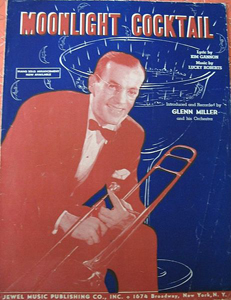 W
W"Moonlight Cocktail" is a 1942 big band song recorded by Glenn Miller during World War II. The music was composed by Luckey Roberts with lyrics by Kim Gannon.
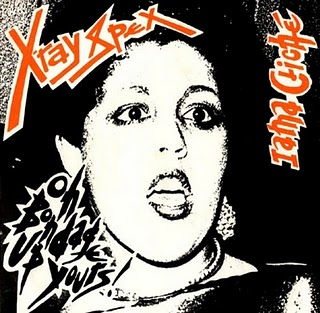 W
W"Oh Bondage Up Yours!" is the debut single by English punk rock band X-Ray Spex. Released in September 1977, it is regarded by critics as a prototypic example of British punk, though it was not a chart hit.
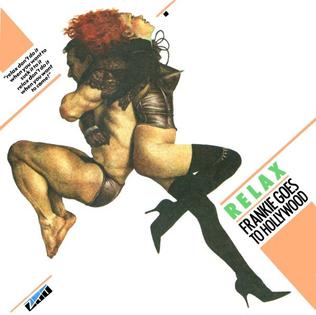 W
W"Relax" is a song by Frankie Goes to Hollywood, released in the United Kingdom by ZTT Records in 1983 as the Liverpudlian band's debut single.
 W
W"Respectable Street" is a song written by Andy Partridge of XTC, released as the opening track on their 1980 album Black Sea. According to Partridge, the song is about English streets and "the hypocrisy of living in a so-called respectable neighborhood. It's all talk behind twitching curtains. It's all Alan Bennett land." Discounting the Canada-only "Love at First Sight", it was the fourth and last single issued from the LP. BBC Radio banned the song because of its references to abortion and a "Sony Entertainment Centre".
 W
W"Sex & Drugs & Rock & Roll" is a song and single by Ian Dury. It was originally released as a Stiff Records single, with "Razzle in My Pocket" as the B-side, on 26 August 1977. The song was released under the single name "Ian Dury", but three members of the Blockheads appear on the record – the song's co-writer and guitarist Chaz Jankel, Norman Watt-Roy on bass and drummer Charlie Charles.
 W
W"Sex Over the Phone" is a song recorded by American disco group the Village People. It reached number 59 on the UK Singles Chart.
 W
W"Smack My Bitch Up" is a song by English rave group the Prodigy. It was released in November 1997 as the third and final single from the album The Fat of the Land. Mixmag readers voted it the third greatest dance track of all time.
"Spasticus Autisticus" is a song written by Ian Dury and co-written by Chaz Jankel, released both as a single and on the album Lord Upminster.
 W
W"Statue of Liberty" is a 1978 single by XTC. It was recorded at Abbey Road Studios, London and subsequently banned by the BBC for the lyrics "In my fantasy I sail beneath your skirt". XTC performed the song on the BBC2 television show The Old Grey Whistle Test in 1978.
 W
W"When I'm Cleaning Windows" is a comedy song performed by Lancastrian comic, actor and ukulele player George Formby. It first appeared in the 1936 film Keep Your Seats, Please. The song was credited as written by Formby, Harry Gifford and Fred E. Cliffe. Formby performed the song in A♭ in Keep Your Seats, Please. For the single release, the key was changed to B♭.
 W
W"Zombie" is a protest song by Irish alternative rock band the Cranberries, written in memory of the two young victims who were killed in the 1993 Warrington bombings, Johnathan Ball and Tim Parry. It was released on 19 September 1994 as the lead single from their second studio album, No Need to Argue, two weeks ahead of the album's release. Music critics have long recognised "Zombie" by the Cranberries as "a masterpiece of alternative rock".